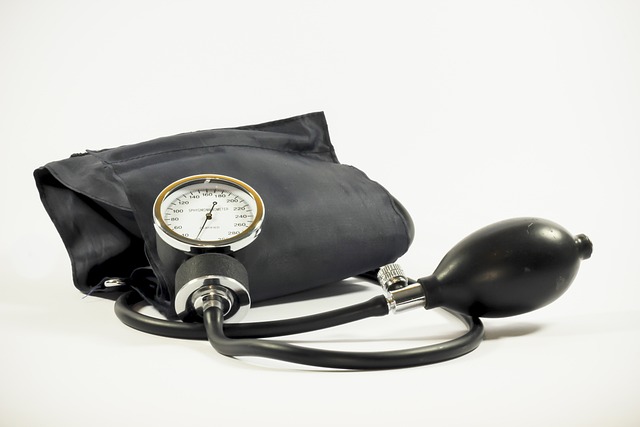High blood pressure, or hypertension, is a common health condition affecting millions of people worldwide. Left unmanaged, it can lead to severe complications such as heart disease, stroke, and kidney failure. Consequently, many individuals with high blood pressure, health enthusiasts, and nutrition-conscious readers are constantly seeking effective ways to manage and reduce their blood pressure levels. One natural approach that has garnered significant attention is the consumption of omega-3 fatty acids. But does omega-3 lower blood pressure? This blog post explores the relationship between omega-3 fatty acids and blood pressure, it will provide information regarding the question “does omega 3 lower blood pressure”.
Table of Contents
Understanding Omega-3 Fatty Acids
Omega-3 fatty acids are a type of polyunsaturated fat essential for human health. They are termed “essential” because the body cannot produce them on its own; hence, they must be obtained through diet or supplements. There are three primary types of omega-3 fatty acids:
- Eicosapentaenoic Acid (EPA) – Found mainly in fatty fish such as salmon, mackerel, and sardines.
- Docosahexaenoic Acid (DHA) – Also found in fatty fish and algae.
- Alpha-linolenic Acid (ALA) – Found in plant-based sources like flaxseeds, chia seeds, and walnuts.
The Role of Omega-3 in Cardiovascular Health
Omega-3 fatty acids have long been recognized for their beneficial effects on cardiovascular health. They are known to:
- Reduce inflammation
- Lower triglyceride levels
- Improve arterial function
- Decrease the risk of arrhythmias
These benefits contribute to the overall health of the cardiovascular system, but how do they impact blood pressure specifically?
Scientific Research on How Does Omega 3 Lower Blood Pressure
Meta-Analyses and Systematic Reviews
Several meta-analyses and systematic reviews have investigated on how does omega 3 lower blood pressure. A meta-analysis published in the “American Journal of Hypertension” reviewed 70 randomized controlled trials (RCTs) and found that omega-3 supplementation led to a modest but significant reduction in both systolic and diastolic blood pressure. The effects were more pronounced in individuals with existing hypertension.
Randomized Controlled Trials
Numerous RCTs have also explored how does omega 3 lower blood pressure. One notable study published in the “Journal of Hypertension” involved 200 participants with high blood pressure. The study found that daily supplementation with EPA and DHA significantly reduced both systolic and diastolic blood pressure compared to a placebo.
Another study in the “European Journal of Clinical Nutrition” examined the effects of omega-3-rich fish oil on a group of hypertensive patients. Over 12 weeks, participants who received fish oil supplements experienced a notable decrease in blood pressure levels.
Observational Studies
Observational studies have provided additional insights into the link between omega-3 intake and blood pressure. For instance, a study from the “American Journal of Clinical Nutrition” followed over 4,000 adults and found that those with higher dietary omega-3 intake had lower blood pressure levels compared to those with lower intake.
Mechanisms Behind Omega-3’s Blood Pressure-Lowering Effects
Anti-Inflammatory Properties
Chronic inflammation has been linked to elevated blood pressure. Omega-3 fatty acids possess potent anti-inflammatory properties that can help reduce inflammation in the blood vessels, promoting better blood flow and lowering blood pressure.
Improved Endothelial Function
The endothelium is the inner lining of blood vessels, playing a crucial role in regulating blood pressure. Omega-3 fatty acids enhance endothelial function by increasing the production of nitric oxide, a molecule that helps relax blood vessels and improve circulation.
Reduction in Blood Viscosity
Omega-3 fatty acids can decrease blood viscosity (thickness), making it easier for the heart to pump blood through the arteries. This reduction in blood viscosity can lead to lower blood pressure.
Modulation of the Renin-Angiotensin-Aldosterone System (RAAS)
The RAAS is a hormone system that regulates blood pressure and fluid balance. Omega-3 fatty acids may influence this system, leading to a reduction in blood pressure.
Optimal Dosage and Sources of Omega-3 for Blood Pressure Management
Recommended Dosage
The optimal dosage of omega-3 fatty acids for blood pressure management varies depending on individual needs and health conditions. However, general recommendations suggest:
- For general health: 250-500 mg of combined EPA and DHA per day
- For blood pressure management: 1,000-3,000 mg of combined EPA and DHA per day
It’s important to consult with a healthcare professional before starting any supplementation regimen, especially if you have underlying health conditions or are taking medications.
Dietary Sources
Incorporating omega-3-rich foods into your diet is an excellent way to meet your daily requirements. Some of the best dietary sources include:

- Fatty fish (salmon, mackerel, sardines)
- Chia seeds
- Flaxseeds and flaxseed oil
- Walnuts
- Algal oil (for vegetarians and vegans)
Supplements
For those who find it challenging to obtain sufficient omega-3s through diet alone, supplements can be a convenient option. Fish oil and algal oil supplements are widely available and can provide a concentrated dose of EPA and DHA.
Combining Omega-3 with Other Lifestyle Changes
While omega-3 fatty acids can play a significant role in blood pressure management, it’s essential to combine them with other healthy lifestyle changes for optimal results. Here are some additional strategies to consider:
Regular Exercise
Engaging in regular physical activity can help lower blood pressure and improve overall cardiovascular health. Aim for at least 150 minutes of moderate-intensity exercise per week.
Balanced Diet
Adopting a balanced diet rich in fruits, vegetables, whole grains, and lean proteins can support blood pressure management. Consider reducing sodium intake and increasing potassium-rich foods.
Stress Management
Chronic stress can contribute to elevated blood pressure. Practicing stress-reducing techniques such as meditation, yoga, and deep breathing exercises can help maintain healthy blood pressure levels.
Limiting Alcohol and Caffeine
Excessive alcohol and caffeine consumption can raise blood pressure. Limiting these substances can be beneficial for blood pressure control.
Maintaining a Healthy Weight
Being overweight or obese increases the risk of hypertension. Achieving and maintaining a healthy weight through a combination of diet and exercise can positively impact blood pressure.
Potential Side Effects and Risks of Omega-3 Supplementation
Gastrointestinal Issues
Some individuals may experience gastrointestinal issues such as nausea, diarrhea, or fishy burps when taking omega-3 supplements. Starting with a lower dose and gradually increasing it can help mitigate these side effects.
Bleeding Risk
High doses of omega-3 fatty acids can increase the risk of bleeding, especially in individuals taking blood-thinning medications. It’s crucial to consult with a healthcare professional before starting omega-3 supplementation if you have concerns about bleeding risk.
Interaction with Medications
Omega-3 supplements may interact with certain medications, including blood pressure medications, anticoagulants, and antiplatelet drugs. Always inform your healthcare provider about any supplements you are taking to avoid potential interactions.
Conclusion
In conclusion, omega-3 fatty acids have shown promise in lowering blood pressure and promoting overall cardiovascular health. Scientific evidence from meta-analyses, randomized controlled trials, and observational studies supports the beneficial effects of omega-3s on blood pressure management. By incorporating omega-3-rich foods or supplements into your diet, along with other healthy lifestyle changes, you can take proactive steps towards maintaining healthy blood pressure levels and reducing the risk of hypertension-related complications.
If you’re considering omega-3 supplementation, consult with a healthcare professional to determine the optimal dosage and ensure it aligns with your individual health needs. Remember, managing blood pressure is a multifaceted approach that involves various lifestyle changes, and omega-3s can be a valuable addition to your overall strategy.
Stay informed, stay healthy, and take charge of your cardiovascular well-being.
Call to Action
If you’re ready to explore the potential benefits of omega-3 for blood pressure management, consider signing up for our newsletter to receive the latest updates on health and nutrition. Our team of experts is dedicated to providing you with valuable insights and practical tips to support your wellness journey.
[Sign Up for Our Newsletter about topic “does omega 3 lower blood pressure”]
Thank you for reading, and here’s to a healthier, happier you!
Note: This blog post is for informational purposes only and should not be considered medical advice. Always consult with a healthcare professional before making any changes to your diet or supplement regimen.


